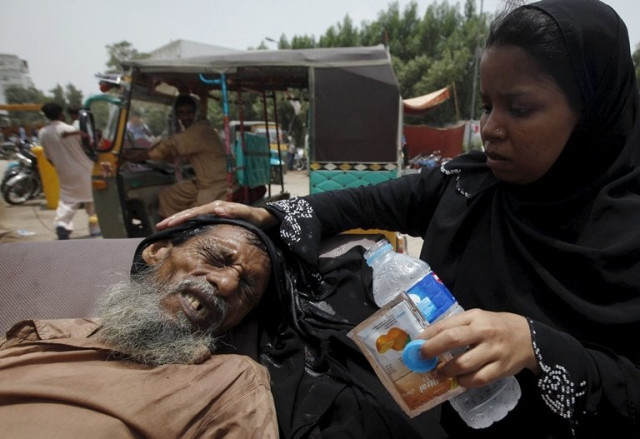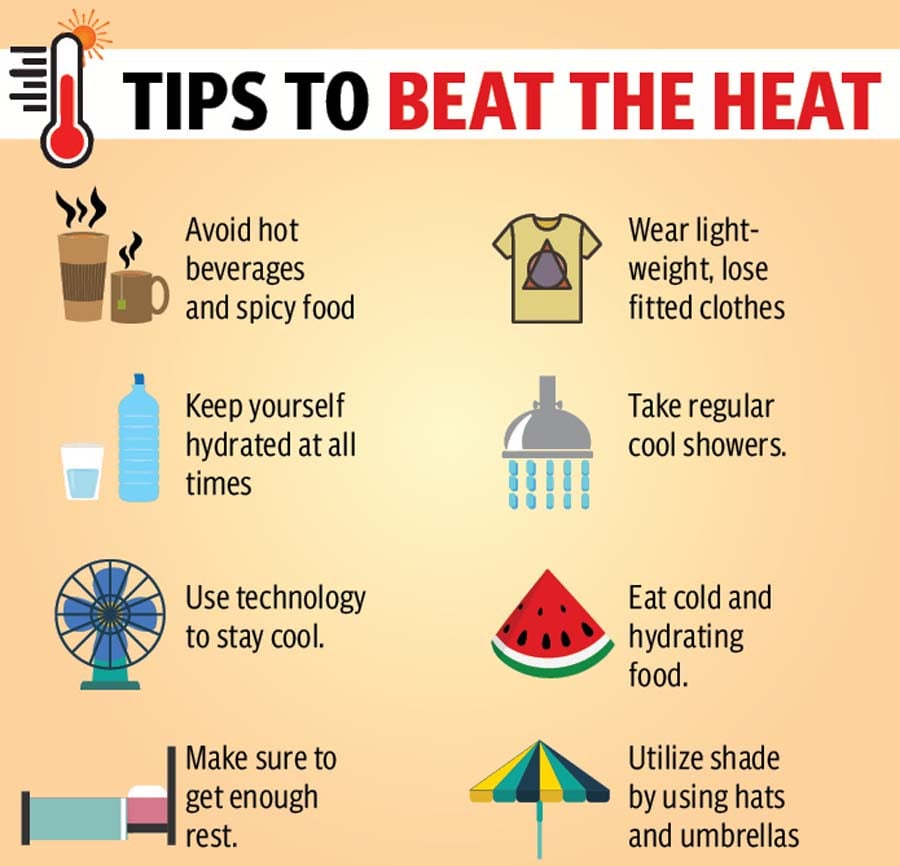PMA doctors guide citizens on precautions during heatwave
List first aid measures for heat-afflicted patients

As the city remains in the grips of an intense heat wave, the Pakistan Medical Association has cautioned citizens from exposing themselves to the sun during peak heat hours. The doctors' association issued an advisory on Tuesday guiding citizens in terms of first aid for heat related ailments and precautionary measures.
As predicted by the Pakistan Meteorological Department, the metropolis and other areas in the province have witnessed sweltering weather in the past two days. The heatwave is likely to persist throughout the week with mercury expected to hit as high as 42 degrees Celsius.
Amid the sizzling heat, experts have advised citizens to wear loose, lightweight clothing, avoid the sun during peak hours - around 11am to 4pm - cover the head with a cap or a wet cloth when stepping out, remain in shade as much as possible and, most importantly, drink plenty of water.

PMA President Dr Ikram Ahmed Tunio and Secretary-General Dr SM Qaiser Sajjad advised citizens to practice extra caution with regards to children and the elderly during the heatwave as low immunity can make them more susceptible to its effects.
They recommended eating light home-cooked meals and to avoid friend items like rolls, samosas and pakoray. They also reminded citizens to always use boiled water for cooking and drinking purposes.
The PMA doctors also urged the government to direct K-Electric to avoid load-shedding during these days of scorching heat and the Karachi Water and Sewerage Board ensure continuous water supply.
Symptoms, first aid
The senior doctors listed out the systems of heatstroke which include itching, weakness, headache, rapid pulse, low blood pressure, nausea and vomiting, muscular pains and losing consciousness.
If you or someone near you experiences these symptoms, move the patient to a place with shade, check the patient's breathing and give them clean drinking water, said the doctors.
But in case the patient is unconscious, they warned, do not put water or any edibles in their mouth. Instead cool their body with a cold sponge or by spraying cold water, said the doctors. Monitor their pulse and blood pressure, and shift them to the hospital urgently.
Published in The Express Tribune, October 14th, 2020.



















COMMENTS
Comments are moderated and generally will be posted if they are on-topic and not abusive.
For more information, please see our Comments FAQ